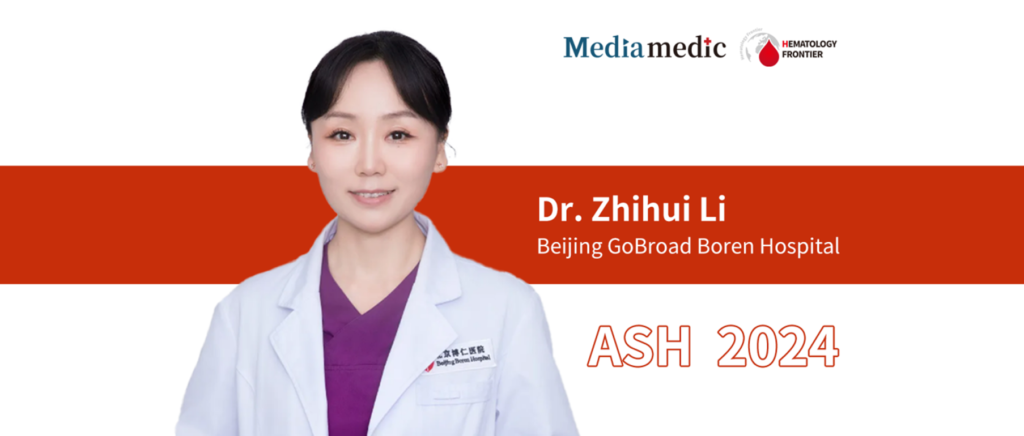
Editor’s Note:The 66th American Society of Hematology (ASH) Annual Meeting was held from December 7–10, 2024, in San Diego, USA. As one of the largest global academic events in hematology, it showcased cutting-edge research and the latest drug development data. At this prestigious conference, Dr. Zhihui Li from Beijing GoBroad Boren Hospital (Dr. Tong Wu ’s team) presented an oral abstract (Abstract 599) investigating the efficacy of allogeneic hematopoietic stem cell transplantation (allo-HSCT) in advanced natural killer/T-cell lymphoma (NKTCL) and analyzing prognostic factors affecting transplantation outcomes. Hematology Frontier invited Professor Li to provide in-depth insights into this study.Abstract 599
Myeloablative Allogeneic Hematopoietic Stem Cell Transplantation Improves Prognosis in Advanced NK/T Cell Lymphoma
Hematology Frontier : In the era of immunotherapy and targeted treatments, how should classic treatments like stem cell transplantation integrate with CAR-T and other therapies? Could you discuss your team’s progress in this area?
- Dr. Zhihui Li: Our center has actively explored CAR-T bridging to allo-HSCT. For B-cell malignancies, our Frontiers in Oncology publication included over 100 relapsed/refractory B-ALL patients receiving CAR-T followed by allo-HSCT, achieving a 2-year OS of 80% in MRD-negative patients. For T-cell malignancies, our Transplantation and Cellular Therapy study reported a 1-year OS of 92% in r/r T-ALL or T-LBL patients treated with donor-derived CD7 CAR-T followed by allo-HSCT. Importantly, for chemo-resistant T-cell malignancies, CAR-T bridging allo-HSCT achieved survival comparable to chemo-sensitive patients undergoing direct transplantation. This strategy offers new hope for these challenging cases.
Hematology Frontier : Could you share the innovations and clinical implications of your study on allo-HSCT in advanced NKTCL?
- Dr. Zhihui Li: For advanced r/r-NKTCL patients, long-term survival is typically under 20%. However, our study showed allo-HSCT could elevate survival to around 50%. Key findings revealed that non-CR/PR status, prior chronic EBV infection, and EBV reactivation post-transplant significantly impacted outcomes, whereas PD-1 inhibitor use did not.
HLH was common in these patients, often linked to LYST mutations, which correlated with higher NRM. This underscores the need for early allo-HSCT during CR to maximize survival
Hematology Frontier : Under Professor Wu Tong’s leadership, the Boren transplant team has achieved notable success. Could you highlight recent advancements?
- Dr. Zhihui Li: Our team has delivered three oral presentations at ASH in five years, reflecting international recognition. We focus on CAR-T bridging allo-HSCT in refractory hematologic malignancies and the role of germline and somatic mutations in transplant outcomes. Our innovative approaches have significantly improved survival in these patients. This year, we extended our work to advanced NKTCL, offering new hope through optimized transplantation strategies. These studies fill critical gaps in managing aggressive blood cancers.
Dr. Zhihui Li
- Chief Physician, Beijing GoBroad Boren Hospital
- Nearly 20 years of experience in hematologic malignancies, specializing in leukemia, lymphoma, and multiple myeloma
- Pioneer in CAR-T and allo-HSCT integration for relapsed/refractory hematologic cancers
- Led 40+ clinical trials and published extensively in SCI-indexed journals
- Active member of several national and international hematology societies


